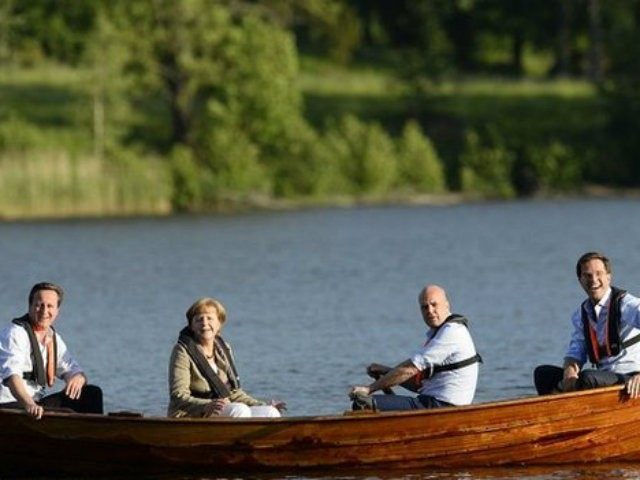European Commission President Jean-Claude Juncker and German Chancellor Angela Merkel may back down and agree to British Prime Minister David Cameron’s demands that EU migrants living in Britain should not be able to send child benefit payments abroad, sources within the Commission have said.
The Express reports that the pair, who are the main powerbrokers within the EU, have realised that should they not give in to any requests by Mr Cameron and the UK they will only strengthen the withdrawalist cause, which yesterday hit 51 per cent support among the British public.
Current rules allow for child benefit paid to EU workers in the UK to be sent abroad to families living in other countries, predominantly Poland and other Eastern European countries.
The British public have been calling for changes to the current laws which cost the tax payer around £600,000 every week for children living overseas.
This is at the same time as a record number of families in Britain are having to resort to using food banks.
The policy is a sensible one for Cameron to use in the early stages of his demand for change, with German Chancellor Angela Merkel also voicing her support for a change in the legislation.
EU politicians have been increasingly nervous at the growing Euroscepticism in the UK, which included anti-EU party UKIP topping the polls decisively in the European Elections in May.
For Britain, the measure would apply to child benefit and tax credits.
But a spokeswoman for the European Commission said the existence of a plan were just “speculation”.
“I cannot confirm the existence of such a plan or deal” she said.
And Poland’s Secretary of State for European Affairs was clearly angered by the proposals saying the transfer of benefit payments across borders was “a red line we cannot allow ourselves to cross and that is discrimination against EU citizens.”
Ms Trzaskowki, pointed out that the issue of “labour mobility” was to be examined as part of the commission’s agenda for next year. The rotating presidency of the European Council will be led by Latvia from January 1st 2015.
An earlier, opaque statement from the EU’s legislative arm said “The Commission will present a package with the aim to support labour mobility and tackle abuses by means of better coordination of social security systems.”
But supporters of a British exit were not pacified by the news. Tory MP David Nuttall said “This might be a small step in the right direction but what the British people really want is not to be told what to do by Brussels.
“If they are ready to concede on this issue, it suggests we need to be far bolder in what we are demanding.
“Mr Juncker and Mrs Merkel are desperate to keep us in the EU because we are one of the few countries that is a net contributor to the EU budget.”
UKIP migration spokesman Steven Woolfe called the Prime Minister’s strategy a “piecemeal approach”.
“He’s like a draughts player trying to solve a chess problem”.
“Tinkering with EU treatises is bound to fail as each move faces opposition from sizable, sometimes, different blocs of countries.”
“This problem needs the game changing move which is to withdraw from the EU altogether, then negotiate a fair and ethical migration policy with EU countries on our way out as an independent sovereign state.”
Eastern European governments are likely to resist any attempt to curb access to welfare benefits in other countries for their citizens since the money is used to directly stimulate consumer spending and economic growth in these countries.
And some Brussels insiders are claiming the move could backfire.
“It would encourage migrants to bring their families with them rather than leave them at home to keep the benefits. That would put more pressure on Britain’s schools, hospitals and housing” one diplomat said.
“It would be unfair for two workers doing the same job with the same number of children not to get the same level of support because one of them does not have their children in the country.”

COMMENTS
Please let us know if you're having issues with commenting.